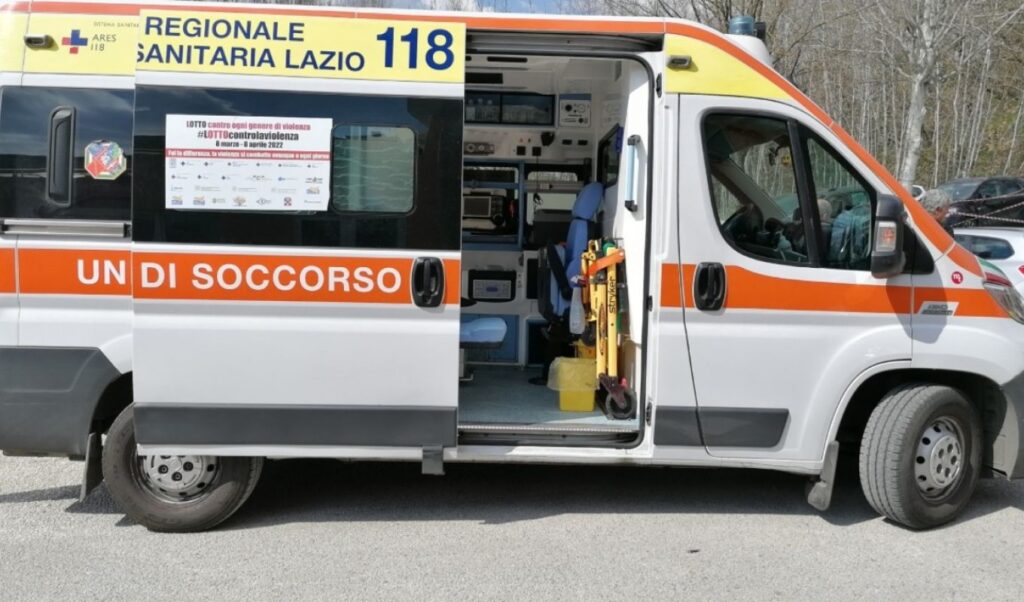A health emergency has been declared in Italy following the deaths of three people from botulism. The outbreak’s epicenter in Calabria was Diamante, a tourist town on the Tyrrhenian Sea coast, where two people lost their lives in recent days and over 12 are hospitalized in Cosenza hospital, two of them in serious condition.
Italy: Three dead from botulism, over 12 people hospitalized
Among the victims is 52-year-old Luigi di Sarno, a tourist from Cercola, Naples, who developed symptoms after eating a meal and visited the private clinic in Belvedere Marittimo. Without showing improvement, he began his return journey to Campania, but his condition worsened and, despite helicopter rescue intervention, he died before reaching Lagonegro hospital.
Broccoli is recalled across Italy after one man is killed and nine people are hospitalised in botulism outbreak https://t.co/WSJ9FhyIkL
— Daily Mail (@DailyMail) August 8, 2025
The second victim, a 45-year-old from Praia a Mare, also developed symptoms after consuming food from the same vendor and had gone to the same clinic.
The third case involves a 38-year-old woman in Sardinia, who first showed symptoms in late July after consuming guacamole sauce at a festival in Monserrato, near Cagliari. Initially, the woman was hospitalized in critical condition at Brotzu hospital and later transferred to Businco, where she eventually died.
Health authorities mobilize and prosecutor’s office launches investigation
Italy’s health ministry immediately activated health mechanisms in Calabria and Sardinia to ensure rapid antidote administration to patients.
The head of the prevention, research and emergency department, Maria Rosaria Campitiello, emphasized that the immediate response was made possible thanks to the National Strategic Antidote and Drug Reserve network and cooperation of all involved agencies.
Meanwhile, the Paola prosecutor’s office has launched a criminal investigation into the Calabria poisoning case, focusing among other things on the speed and quality of the medical response.
Three arrests
Authorities proceeded with the arrest of three people, who face charges of manslaughter through negligence, bodily harm through negligence and distribution of harmful food.
These include the street vendor allegedly selling contaminated food from his food truck, as well as legal representatives of two companies that supplied raw materials.
According to initial findings, all victims and patients had consumed sandwiches with sausage and broccoli from the same vendor. His vehicle was confiscated, while investigations reveal it remained exposed to the sun all day, a condition that likely favored toxin development in improperly preserved food. Laboratory tests are being conducted by the Cosenza Health Service Department and local police.
Diagnostic delays
At the same time, doctors are also being examined for their responses after patient admissions. The investigation focuses on the operation of the private Belvedere Marittimo clinic, which the two Calabria victims visited, as according to current evidence, neither received required treatment.
Instead, they were advised to go to a better-equipped hospital. Delayed recognition of botulism symptoms appears to have contributed to their condition’s deterioration.
What is botulism
Botulism is a rare but serious paralytic disease caused by a neurotoxin produced by the bacterium Clostridium botulinum and sometimes by strains of Clostridium butyricum and Clostridium baratii bacteria.
There are six types of botulism:
- foodborne,
- infant,
- adult intestinal toxemia,
- wound,
- iatrogenic and
- inhalation.
Clostridium botulinum is a Gram (+) bacterium that develops best under anaerobic conditions. The bacterium produces spores that allow it to survive in adverse conditions until suitable conditions exist for its development. There are 7 types of botulism toxin separated by letters A, B, C, D, E, F, G. Only types A, B, E and rarely F cause disease in humans.
Botulism toxin is considered among the most lethal substances. The median lethal dose (LD50) is 1 ng toxin per kilogram body weight.
Foodborne botulism and its symptoms
Foodborne botulism occurs when Clostridium botulinum develops and produces toxin in food, which is then consumed without adequate cooking to destroy the toxin. The toxin is usually produced in improperly prepared or canned foods, low in salt or sugar, low acidity, as well as in pasteurized or lightly cooked foods that haven’t been frozen, especially those in airtight packaging (e.g. smoked fish, meat products, sauces, etc.).
The toxin is destroyed by boiling (85°C for 5 minutes or more), while spores require more time to be destroyed (120°C for 10 minutes or more).
Initially patients present weakness, dizziness, blurred vision, dry mouth, difficulty swallowing and speaking, due to cranial nerve involvement by botulism toxin. Neurological symptoms result from muscle paralysis caused by botulism toxin and are described as “flaccid symmetric descending paralysis”. Respiratory muscle paralysis can be fatal if not treated promptly with mechanical respiratory support. No fever or loss of consciousness is observed. Gastrointestinal disorders may coexist, such as nausea, vomiting, constipation or more rarely diarrhea.
Diagnosis and treatment
Diagnosis of foodborne botulism relies on finding:
- botulism toxin in serum, feces, gastric secretions of patient and in food suspected of contamination or
- finding Clostridium botulinum in gastric secretion or fecal cultures from patient.
Detection of Clostridium botulinum in suspected food doesn’t establish botulism diagnosis since bacterial spores can be found everywhere, unlike toxin detection in suspected food which is strongly diagnostic. In wound botulism, diagnosis is based on finding toxin in patient serum or isolating the causative agent in wound culture. In adult intestinal toxemia, diagnosis relies on finding Clostridium botulinum/toxin in feces or biopsy materials.
Foodborne and wound botulism are treated with antitoxin, which blocks toxin action. When antitoxin is given before paralysis completion, it can prevent deterioration and shorten recovery time. In foodborne botulism, removing contaminated food from the intestine is helpful either through enemas or inducing vomiting.
Respiratory paralysis occurring in severe botulism is treated in Intensive Care Units using ventilators for weeks or even months.




